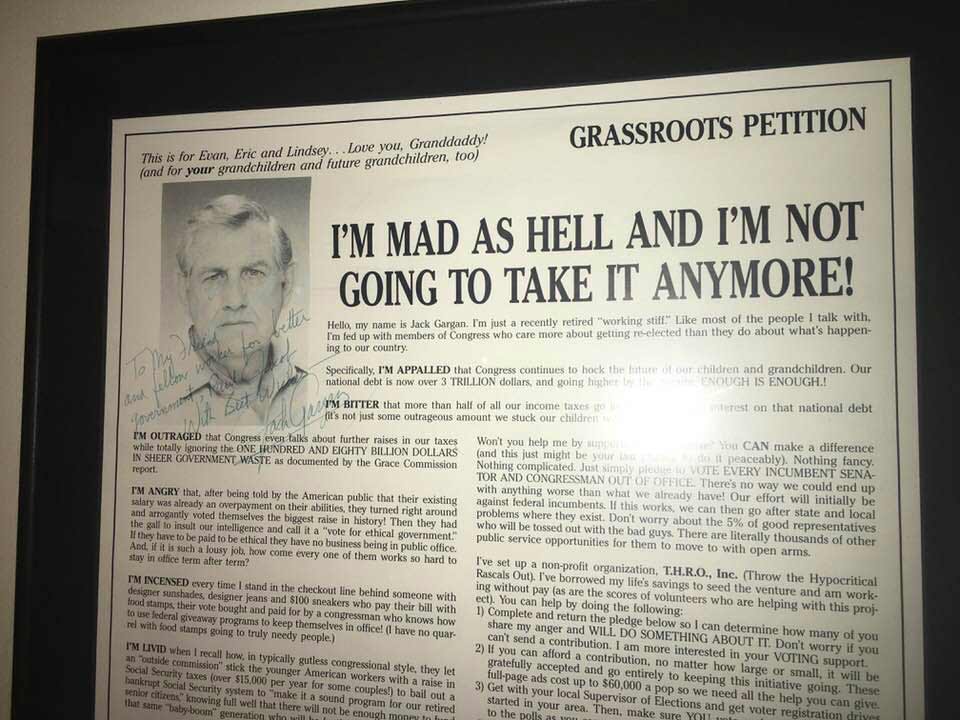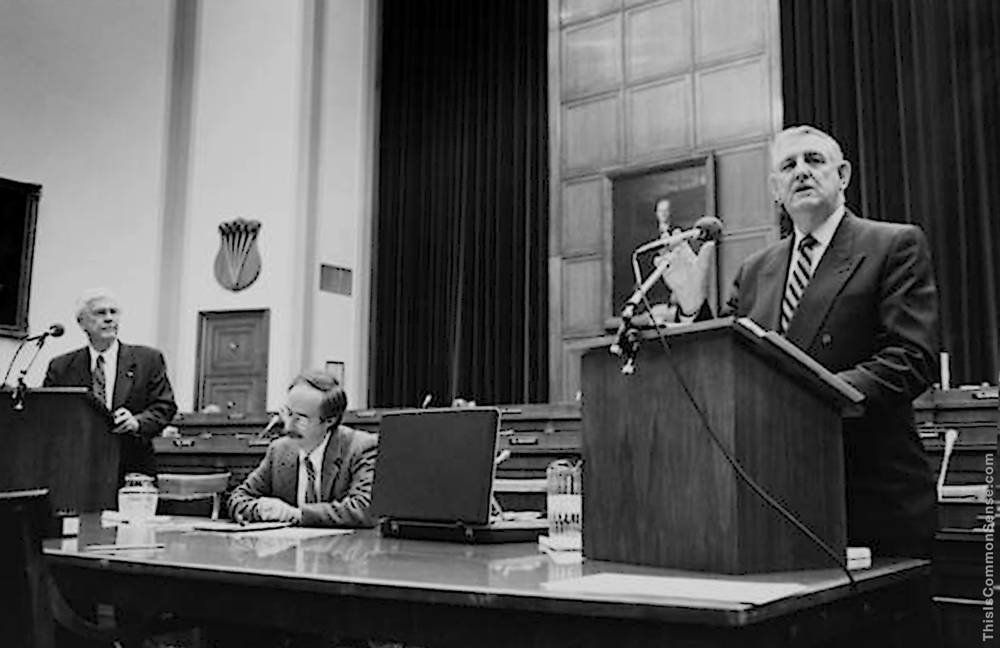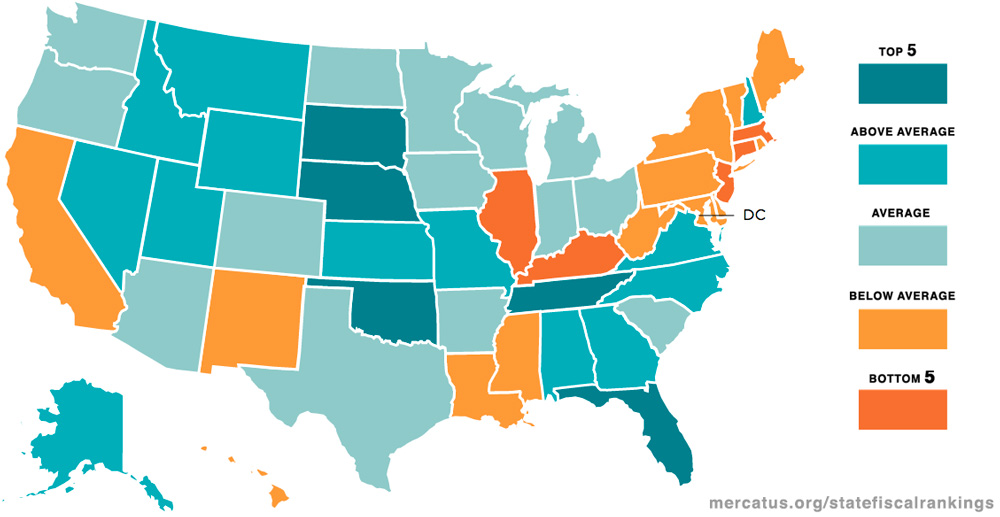What can one person do?
I wish Jack Gargan were here to answer that question — I can almost hear his characteristic chuckle, see the glint in his Irish eyes, in preparation. But sadly, Jack passed away late Sunday night or early Monday morning in Thailand, where he had retired. He was 88 years of age.
This loss, coming on the cusp of yesterday’s election, transported me back 28 years ago — to the 1990 election, when the anti-incumbency, pro-term limits movement was in its infancy.
I had worked all year in Illinois on my first-ever ballot initiative campaign, the Tax Accountability Amendment. Though polls showed our issue at 75 percent support, the Illinois supreme court tossed it off the ballot. I was pretty bummed.
 That’s when I saw a full-page newspaper advertisement with a picture of a regular-looking fellow next to a big, bold headline (borrowed from the 1976 movie, Network): “I’M MAD AS HELL AND I’M NOT GOING TO TAKE IT ANYMORE.”
That’s when I saw a full-page newspaper advertisement with a picture of a regular-looking fellow next to a big, bold headline (borrowed from the 1976 movie, Network): “I’M MAD AS HELL AND I’M NOT GOING TO TAKE IT ANYMORE.”
The ad took politicians in Congress to task for “arrogantly [voting] themselves the biggest pay raise in history,” having “abetted” the Savings & Loan crisis, and turning the United States into “the world’s biggest debtor nation.”
Citizen Gargan pulled $50,000 out of retirement funds to purchase those first advertisements.
And my nerve wasn’t the only one touched. Hundreds of thousands of Americans contributed to allow his all-volunteer organization — Throw the Hypocritical Rascals Out (THRO) — to run, as Wikipedia records it, “633 full-page newspaper advertisements in nearly every major newspaper in the nation.”
In addition to earning the title “the father of the term limits movement,” Jack Gargan also served as the driving force, Richard Winger’s Ballot Access News notes, in getting Ross Perot to run for president in 1992.
What one person can do!
This is Common Sense. I’m Paul Jacob.











